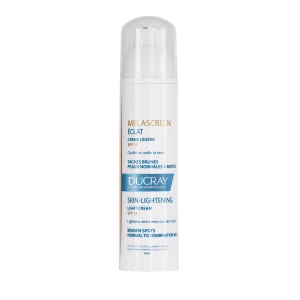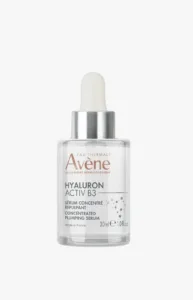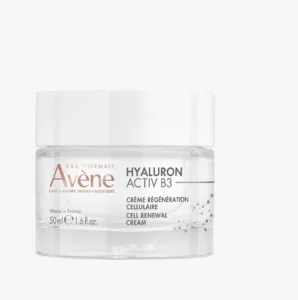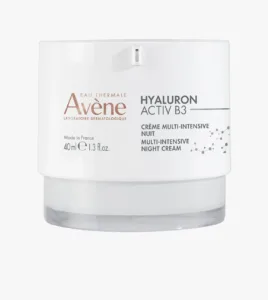
Every now and then, a skincare ingredient shows up at the beauty party with all the right stuff. Niacinamide? It definitely brings energy to the party. Also known as vitamin B3, this multi-tasking ingredient is renowned for its ability to improve the appearance of hyperpigmentation, brighten skin tone, and preserve skin clarity. Interested? Let’s take a minute to explore the benefits of niacinamide for your skin so you can decide for yourself whether this staple skincare ingredient deserves a spot on your beauty shelf. (Spoiler: it is).
What is niacinamide?
Niacinamide is a type of vitamin B3, a water-soluble vitamin that plays an important role in skin health. Although the body can produce niacinamide from the amino acid tryptophan, most vitamin B3 must be obtained from the diet. Fortunately, this B vitamin can be found in a variety of niacin-rich foods, such as fish, poultry, cereals, nuts, and legumes. There are three different forms of vitamin B3: niacinamide (nicotinamide), niacin (nicotinic acid) and nicotinamide riboside. Of these three forms, niacinamide is the ideal vitamin B3 derivative for skin care products.
What does niacinamide do for your skin?
Niacinamide is a versatile skin care ingredient. It contributes to the formation of keratin, a protein that keeps skin healthy. It has also been shown to make skin stronger, smoother, and more radiant.
Here are the six main benefits of niacinamide for your skin:
- Boosts hydration
Niacinamide can improve the function of your skin’s lipid barrier (a layer of water and oil that protects your skin). This helps retain moisture and keep out pollutants and other potential irritants, making skin more hydrated and less sensitive.
- Calms redness
Niacinamide has been shown to reduce inflammation, which can help calm redness caused by conditions such as acne, rosacea, and eczema. It can also soothe irritation caused by powerful exfoliants like retinol or glycolic acid, which remove dead cells from the skin’s surface.
- May reduce the appearance of pores
Niacinamide has not been proven to reduce pore size. But niacinamide can help minimize their appearance by helping to keep your skin smooth and clear. It can also help regulate the amount of sebum produced by your glands, which can prevent breakouts and clogged pores.
- Treat brown spots
Niacinamide is dermatologist-approved for brightening the complexion. Some research suggests that skincare formulas containing 5% niacinamide may also help lighten dark spots.
In one small study, a combination of skin brighteners including retinol and niacinamide reduced dark spots and fine lines. They also improved skin radiance and texture.
If you wish to treat your brown spots, we recommend the following depigmenting cream, enriched with niacinamide.
Ducray Melascreen Eclat Light Cream SPF15
- Reduce wrinkles and fine lines
The antioxidant properties of this vitamin can help protect the skin and help it recover from damage caused by factors such as aging, the sun, and stress. Some research has shown that topical niacinamide can improve fine lines and wrinkles, as well as skin paleness.
We recommend the following range of products containing Niacinamide, concentrated at 6%. It is effective against skin aging.
Eau Thermale Avène Hyaluron Activ B3 Concentrated Plumping Serum
Apply serum in the morning and/or evening.
Eau Thermale Avène Hyaluron Activ B3 Day Cream
Apply to the face, neck, and décolleté, by itself or following your serum.
Eau Thermale Avène Hyaluron Activ B3 Multi-Intensive Night Cream
Apply 2 pumps to the entire face, neck, and décolleté in the evening.
Once you’ve used these products, you’ll notice significant results from the first use: your skin is smooth, plump, and radiant. Within 15 days, your skin is regenerated and firmer, and wrinkles are corrected.
What are the side effects of niacinamide?
Niacinamide is generally considered gentle and safe for the skin. In rare cases, it may cause:
- An allergic reaction.
- Itching.
- A slight burning sensation.
- Redness.
If you are concerned about potential side effects, perform a patch test by applying a small amount to your forearm and wait 24 hours. Most of the time, you’ll be able to use niacinamide safely, and your skin will be all the better for it.
FAQS
Can niacinamide be used with other skin care ingredients?
In general, niacinamide is compatible with many other non-prescription skin care ingredients. This versatility is often considered one of niacinamide’s main advantages.
Can all skin types use niacinamide?
Formulas containing niacinamide are generally well tolerated, with a low risk of skin irritation. This means that niacinamide-based products are generally considered gentle and suitable options for most skin types, including sensitive and blemish-prone skin. For any specific questions regarding the suitability of niacinamide for your skin’s needs, it’s best to consult a certified dermatologist.
At what age should I start using niacinamide?
Because it offers a wide range of benefits, niacinamide can be used to improve your complexion at any time in your life. That said, niacinamide is often included in many anti-aging skin care programs. Indeed, niacinamide’s moisturizing and brightening properties can help improve the appearance of age-related skin problems such as wrinkles, fine lines, dark spots, and uneven skin tone, depending on the formulation.
Can I use niacinamide every day?
Niacinamide can generally be used daily as part of a well-balanced skin care routine. However, this may vary depending on the specific product you choose. Some products containing niacinamide are formulated for daily use. Other products may be intended for weekly use, or as needed. Always read your product’s instructions carefully, and apply it as recommended on the label (or as directed by your dermatologist).
Is hyaluronic acid better than niacinamide?
Hyaluronic acid and niacinamide are skincare ingredients you’ll find in many products. Both are beneficial in supporting your skin’s moisture levels, but each works differently. While hyaluronic acid is a humectant (meaning it draws water to the skin’s surface), niacinamide helps your skin retain that much-needed moisture. If you’re trying to decide between the two, neither is necessarily better than the other. On the contrary, they can be an ideal combination when used together as part of your skin care program.
Things to remember
When used topically on a daily basis, niacinamide can have a positive impact on your skin’s overall health. This ingredient can help reduce inflammation and hyperpigmentation, smooth overall skin texture and lighten skin tone.
It can take several weeks to see a noticeable improvement, so it’s important to be patient and stick to your routine.












